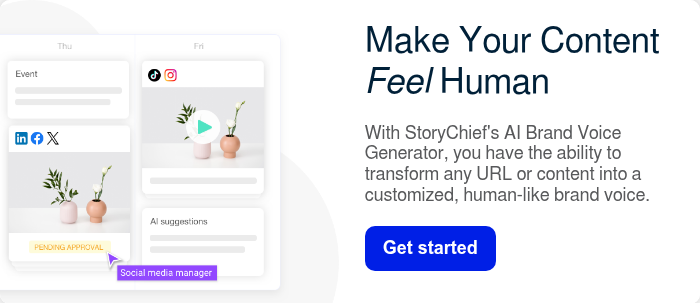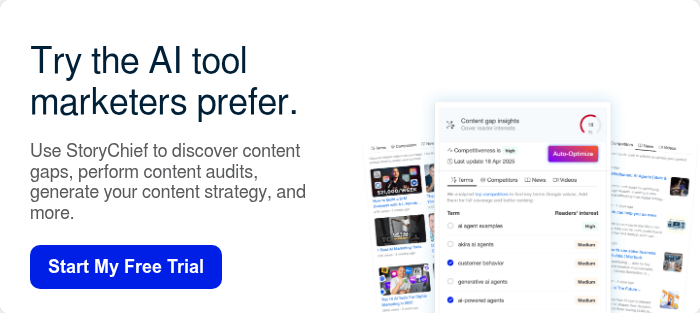AI is constantly reshaping the search landscape. With the ability to transform the way users search and receive information online, artificial intelligence is driving a new era of user-led SEO.
With more than 90% of marketers now concerned about their SEO visibility in 2025, what does this shift mean for your digital footprint?
Making yourself visible in a generative search requires a new approach to your digital PR. It’s time to forget what once propelled you to the top of SERPs and start working on content authenticity, building brand mentions, and cleaning up your digital hygiene.
Which brings us to the practical part: We’ve put together a guide to improving your AI visibility using a new set of AI-focused digital PR strategies.
Let’s take a closer look at what’s behind today’s AI-powered SEO shift as we reveal how you can keep your engagement rising in 2026 and beyond.
Traditional Search Traffic Keeps Falling
Is organic search traffic falling? Before we jump into how to build your online visibility, let’s see what is changing in the SEO industry.
With major online players like Hubspot and DMG Media reporting an 89% decline in click-through-rates during an organic search, are we embarking on a traffic apocalypse?
According to experts at SparkToro, over half of all Google searches in 2025 now end without any clicks at all. This is due to the introduction of Google’s search generative experience, or in other words, the ‘AI search’ feature.
Most of us are now familiar with the AI overview that appears when we ask Google a question. Tied up in a neat little box, our queries are answered as soon as we press search, reducing the need to scroll through the list of search results.

As a result, we enter an era of zero-click content, where the projected annual visitors websites receive from traditional search is falling rapidly, while engagement driven by LLMs like Google AI and ChatGPT is continuing to rise.
Is AI Search Behind The Shift?
The rise of AI search is most likely to be the cause of organic click-through-rates declining.
In fact, Google’s rollout of AI overviews has reduced organic CTR by up to 80% in some search industries.
On the other side of the AI pond, LLM search models like ChatGPT have had over 5 billion visitors between August and September alone. This tells us that more and more searchers are turning to AI for the answers in 2025 instead of scrolling through the first page of SEO-optimized results.
So what does this mean for businesses looking to improve their visibility in an AI-dominated search landscape?
The answer is to bend to what AI search engines are looking for. While a top SERP placement may not get you the results you need, getting mentioned and cited in an AI-generated answer could not only skyrocket your visibility but also get your CTR back on track in 2026.
4 Digital PR Tips To Boost Your AI Visibility
With this in mind, we’ve put together a list of four essential digital PR strategies to adopt before 2026 to make your whole brand more attractive to AI search engines on every platform.
Focus on Content Authenticity and Human Connection
AI-powered search engines are looking for content that feels genuinely human. Modern search algorithms care less about exact keyword matches and more about user intent, authenticity, and human-centric experiences.
That is why it is no surprise that user-led question and answer platform Reddit now accounts for over 40% of all AI citations, surpassing traditional sources like Wikipedia and YouTube.
To compete with this, ensure that your digital PR strategy involves leveraging user-generated content. Use your platform to publicly answer user questions and invite followers to create content surrounding your brand.
Whether these be authentic customer stories, reviews, or testimonials, every one of these that you publish on your socials, website, and any other AI-crawled platform raises your chances of being picked up in an AI search.
Better still, get on Reddit and start answering brand-focused or industry-related questions. AI algorithms are hunting for helpful content, not just star ratings.
Work on Building Brand Mentions
AI search is often dependent on trust signals from across the web when mentioning/citing a source in a generative answer.
Rather than simply placing links on a powerful domain, AI search maps your credibility based on how often your brand is referenced and in what context.
To take advantage of this, your digital PR strategy should be centered around gaining as many credible mentions as possible on reputable blogs, expert roundups, and especially from your demographic itself.
The key here is to make your brand easy to reference. Building a ‘mention-ready’ brand involves creating assets that are easy to share and reference. These are powerful blog posts, press releases, engaging social content, brand partnerships, and anything else you can think of.
To build audience-led brand mentions, it’s time to take your UGC strategy to the next level. Encourage users to create content through contests and campaigns that actively mention your brand.
Whether you ask your audience to share photos, tips, or experiences, ensure that each post contains a branded hashtag or mention of the brand name for a chance to win a prize.
Improve Your Domain’s AI Visibility
AI search engines are constantly looking at your digital footprint. In 2025, AI systems will look for alignment across multiple elements, including social profiles, website content, link profile, and even your domain name.
Any inconsistencies could set your brand up for failure when it comes to appearing in an AI search result.
Start by ensuring your brand name, leadership details, product descriptions, and value propositions appear consistently across all platforms.
When it comes to generating a domain name, make sure that the domain you choose matches your brand identity on social media and any other online platforms.
‘Backlinko.com’ is a great example of a domain name that is AI-visible; not only does it match the brand’s social media handles and other digital touchpoints, but the name itself embodies the industry it targets.

For a company specializing in link building, the name ‘Backlinko’ helps AI-powered search engines recognize the domain as a helpful source for backlink-building queries.
While choosing a targeted domain name is crucial, AI crawlers will still avoid your brand if your on-page content contains inconsistencies, such as outdated pages or broken citations.
AI engines have been known to reward brands whose domain and content footprint is well structured, intentional, and most importantly, reliable.
When it comes to fostering powerful digital hygiene long-term, we’d recommend publishing as many evergreen resources as possible. These are explainer pages, high-quality FAQs, and long-lasting PR materials such as press releases containing evergreen studies.
These create long-term trust signals that reassure AI search engines that your brand is stable and trustworthy, increasing your chances of building visibility in an SGE result.
Use Structured Data to Your Advantage
AI search engines also rely on structured data when determining which brands to feature in a generative answer.
If you regularly tag your content, prioritize a Schema markup, and rely on metadata, you’re already well on your way to being featured in an AI overview in 2026.
This is why so many brands are now taking their content strategy over to platforms like YouTube. YouTube’s structure is AI’s best friend. With the ability to combine clean titles, timestamps, and transcripts with emotionally engaging storytelling, it’s no surprise brands are turning tutorials and how-to explainers into video content in 2025.
YouTube is much easier for AI to crawl, categorize, and extract insights from, meaning that its content naturally appears in AI-generated recommendations.

Look at this standout link to a YouTube video in an AI overview. The video attracts clicks, and those clicks turn into conversions if your YouTube content includes plenty of CTAs.
The same goes for your website content and your other social content. If you prioritize structuring your data, adding alt text to images, and even hashtagging your social posts, you immediately raise your chances of appearing in an AI-generated search result.
Digital PR in 2026 and Beyond
The online landscape is transforming, and your digital PR is no exception. It’s time to forget everything you once knew about improving your visibility online and take your branding strategy back to the drawing board before 2026.
The key to improving your AI footprint is to lean into what AI search engines are trying to achieve.
Google’s new focus on helpful content and user-led answers tells us that the future of PR should be human-centric. Promotional content rarely garners AI engagement. Instead, let your audience do the talking. Prioritize UGC, reviews, and user-focused FAQ content. These are the PR tactics that provide you with the trust signals AI search engines are looking for.









